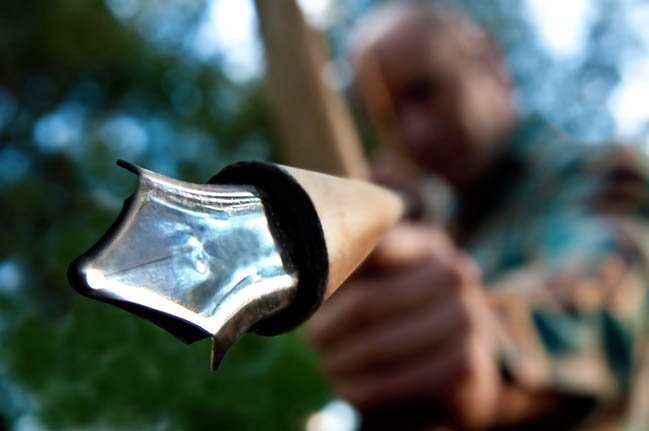Writing
My interest in writing didn’t begin in the way of children being locked indoors during rainy winters with nothing to do but read. I spent my boyhood climbing, burning and breaking anything unguarded or expensive. Mostly, though, it wasn’t an adrenaline-craving as much as imagination that inspired the adventures. I didn’t pretend to be Mowgli; I was Mowgli. The ten-or-so acre forest next door was a jungle, and there definitely were tiger prints in the soft clay. Of course, anyone who saw the little tyke running around with a breadknife clasped in his hand might have had trouble seeing Mowgli. They might have had trouble seeing anything at all through the tears of laughter. But for me, it was magical. The sandpit was a city, the treehouses were castles, and the days were always too short. I was writing stories constantly. It was only later that I started putting them on paper.
I’ve always had a love for English, but it was in my late teens when I decided to get to know the language better. I started buying and reading classics – Dickens, Twain, Doyle, Austen, Stevenson, etc. I read them with care, learning the meaning of every new word and working out every difficult passage. I thought it was setting me up pretty well. I started to write like someone who should have been dead for about 200 years.
What really brought the problem home was when I began teaching high-school English. One of my high school pupils raised a hand after a truly fine explanation on my part and said, “Sir, we have no idea what you are saying.” The rest of the class nodded in silence. So I started reading modern books, mountains of them. While I still highly value the experience of studying the oldies and the old-school charm of expression, I grew to recognise the importance of keeping up with the evolution of a language.
I realised that trying to impress people as a writer (or speaker) at the risk of excluding most of them is not a great idea. Communication, after all, is about what is understood, not what is transmitted. I don’t think that means the smaller the vocab the better, but I think there is a difference between words that make a reader stretch in a way that enhances the experience of the story and words that make a reader throw the book down. I suppose it’s the difference between leading the reader and trying to impress the reader. It changed the way I chose words and structured sentences. It also changed what I wrote about. So academic puffiness went out the window, and as I looked through the shutters at the view, the voices of childhood wonder began to sing, to drift back to me, begging to be put into words. I was beginning to find my voice.
Book Roots
In some ways, writing Dawn of Wonder was like living those times out again. Some experiences I really did live out while writing them – the sprained ankle was something I managed to accomplish a few hundred yards into a rather long obstacle race; I built that bow as Torval did (only that mine now looks like a warped fence rail); and as to the sword fighting – my neighbours might have been amused if they’d seen how the weeds got trimmed last summer, along with one or two roses.
 The experiences at the academy were inspired both by a teaching career and studies that took me from physics through teaching and creative media to English, and opened the doors to some truly impressive settings. The picture alongside is of a winter sunset over the main courtyard in Dublin Trinity College where I was given access to the library for a few months as a visiting postgrad student. Lest I give a false impression of effortless basking in an ever-pleasurable glow of academia, let me add that formal education gave me many opportunities to ponder the situation of, “If at first you do not succeed …”
The experiences at the academy were inspired both by a teaching career and studies that took me from physics through teaching and creative media to English, and opened the doors to some truly impressive settings. The picture alongside is of a winter sunset over the main courtyard in Dublin Trinity College where I was given access to the library for a few months as a visiting postgrad student. Lest I give a false impression of effortless basking in an ever-pleasurable glow of academia, let me add that formal education gave me many opportunities to ponder the situation of, “If at first you do not succeed …”
After the scientific studies, I worked in recording studios and focussed on writing after hours. I had a kind of half-formed book idea, more of a setting than a story. I was dreaming my way into a world full of places I wanted to explore. When work in music became scarce, I moved into teaching and went back to university (human sciences this time). Four years into teaching, the itch to write and complete a book was growing to a fever. I knew it was time. By then I’d written three novels-worth of tired, after-hours prose, so I left my job, cleared everything aside and began to imagine. One day, the scene of the children on the bridge floated into my head. I grinned as I heard Thomas speak in a trembling voice, “What if I land on a fish?” The tone for the first chapter was set and the words began to flow. I already had the setting and the general plot line, but now I’d finally found my way in to the story.
More Personal
Sometimes we conceal our deepest convictions out of respect for others who believe differently, but sometimes we do so out of timidity. There is a fine line between being discreet and being dishonest. I felt that if I’m to speak of myself or my inspiration, it wouldn’t be entirely honest if I didn’t go to the place of deepest personal convictions, so let me say that the foundation for my life and the inspiration at the heart of my writing is Jesus.
The word ‘Christian’ evokes all sorts of responses, often a very sincere gag reflex. Who hasn’t seen a TV scam cloaked in Christian wool or been shocked by revelations of absolute hypocrisy? The thing I’ve begun to realise, though, is that these are no more Christianity than false currency is legal tender. Evaluating the real by examining the counterfeit will mangle the conclusion every time.
My conviction that Jesus is all that he claims to be is drawn partly from looking at the evidence, including much from opposing perspectives, but the heart of my confidence is based on a relationship with God that I know to be real with no less certainty that I know I’m alive. It is this relationship that is the source of everything I understand about redemption, meaning and hope.
I’m no fount of easy answers. I have heaps of things I battle with, that I can’t understand. God didn’t give me a contract describing himself and his intentions. He flooded me with pure love and told me to kneel – not for his benefit; for mine. Kneeling before him was the best decision of my life.
There’s a lot more I could say, but let me leave it there for now. If you’d like to chat about any of this, drop me a mail, especially if you disagree. While I’m not fond of angry arguments, I really love discussion. Honest and respectful disagreement can be a very profitable thing.

